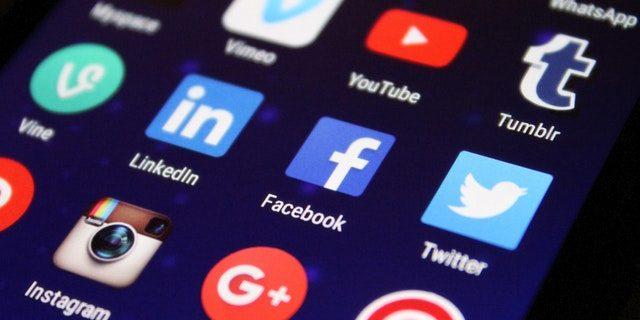When entering certain addiction treatment facilities, new clients may be dismayed to surrender their cellphone as part of their program regimen. Removing access to mobile devices for thirty to ninety days is a fairly common treatment procedure. Advocates of this practice argue that cellphones are a detrimental distraction from recovery, while opponents propose that too much time away from “real world issues” can lead to overwhelm when devices are returned. While both viewpoints have merit, it’s imperative to recognize how the use of technology impacts recovery – and to know how to reduce or modify tech use when it becomes a problem.
Technology is a tool, but sometimes even the most useful inventions can become instruments of destruction. Silicon Valley employees have admitted that popular apps are designed to be addictive; companies profit from maximizing on user engagement and the subsequent opportunities for marketing. The use of technology releases the same reward chemicals in the brain as substance use – and the tech industry has a thorough understanding of how to utilize this science for their own benefit.
In early recovery, it’s tempting to look for a substitute to numb uncomfortable feelings. Since tech releases rewarding chemicals, it’s an ideal stand-in. However, the key to progress is leaning into uncomfortable feelings. The only way out is through. Avoiding discomfort only serves to prolong the inevitable. Tech is the perfect distraction from doing “the work”. Recovery is not about talking the talk. It requires action.
Technology also creates a barrier between ourselves and other human beings. This can be highly problematic; human connection isn’t just a warm and fuzzy outcome of recovery, it’s an essential requirement for recovery.
If you suspect that your use of technology has shifted into the realm of abuse – or you simply want to spend more time focusing on your recovery program – here are some simple steps you can take to overhaul your relationship with electronics:
1. Are you playing the “comparison game”? Is jealousy renting space in your head? Do you seek “likes” for validation or to boost your self-esteem? If so, delete apps like Facebook and Instagram. These platforms only show the side of life people want you to see – not how things really are. Your progress in life is good enough and YOU are good enough.
2. Block websites or apps that trigger unhealthy behaviors, such as Craigslist and Tinder, or online retailers where you are tempted to overspend.
3. Take a six to twelve month break from online dating to focus only on yourself. Connect with a sponsor or a group of friends who will hold you accountable. When you take the time to work on yourself, you are able to bring so much more to the table. Only when we feel fulfilled without a relationship are we ready to thrive within a relationship. By practicing self-love, you also set the bar for the behaviors you will and will not accept.
4. According to a popular recovery cliché, “the only thing you have to change is everything”. Delete contact information for dealers and unhealthy “friends”. Seek sponsor or clinical support if this task feels too monumental. Changing your phone number may also be helpful. If you find yourself making excuses about why you need to hold onto old contacts, it may be time to examine your motives. Clinging to old connections is an indicator of a reservation, i.e. a feeling of uncertainty about recovery which results in leaving a door open to use.
5. Install an app to monitor your use of social media and to shut you off when you reach a predetermined time limit.
6. Charge your phone in the kitchen versus your bedside table. Complete your morning routine before checking your texts, email, and social media notifications.
7. Don’t be afraid to parent yourself! Create a system in which you have to spend at least 30 minutes engaged in screen-free, outdoor activity before you are allowed social media or Netflix.
8. Don’t bring your phone to meetings or social events. Lock it in your trunk or leave it in a safe, designated area. Some people encourage guests to leave their phones in a basket upon entering the home. It’s rude to look at your phone while other people are speaking. There’s even a new word for this lack of social etiquette: “phubbing” (snubbing in favor of your phone). No matter how good you are at multitasking, you can’t look at your phone and be fully present – and that’s a fact. A signpost of positive progress is the ability to be fully in the moment.
9. Delete time wasting games. Use that time to exercise, cook, read, write, create, and connect. Part of getting comfortable in our own skin means allowing ourselves to be bored and learning to use that time in a healthy way. Drugs and alcohol are a means of evasion…don’t allow technology to become a substitute method of avoidance.
10. Sometimes abstinence is the only way to break an insidious habit. Try putting your TV or gaming console in storage, or deleting all apps from your phone.
It’s important to acknowledge that technology addiction is a real issue. If you are incapable of controlling your gaming or other tech use, reach out for help. Behavioral addiction can cause immense suffering and destroy lives. In order to improve outcomes for those who are struggling, we must combat the miseducation and stigma surrounding behavioral addiction. Let’s challenge ourselves and each other to support all people in the healing process.
If you’re having trouble staying focused on your addiction recovery – and wondering if you might benefit from P.H.P. or I.O.P. treatment – please call (888) 649-1149. We are available to take your call 24/7.
Autumn Khavari is the Process Recovery Center’s Web Content Writer. She received an education in Substance Abuse Counseling from Beal College in Bangor, Maine.



